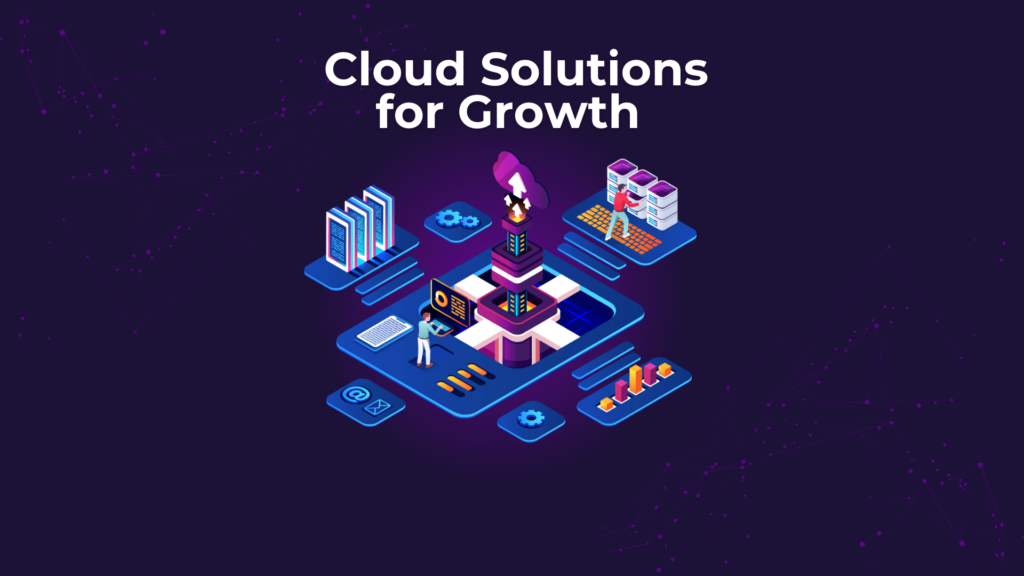How to Develop a Cloud-Based Mobile App?
Cloud-based mobile application development refers to the creation of mobile applications by basing their core functions or data processing processes on cloud computing infrastructures.
This technology offers many benefits to entrepreneurs today. The development and proliferation of cloud products has resulted in cost advantages as well as performance gains in a competitive market.

The Role of Cloud in Digital Transformation and Mobile Applications
Digital transformation is profoundly affecting the business world and technology trends. Mobile applications in particular have become one of the most important tools in this transformation. The success of mobile applications is not limited to user-friendly interfaces and functional features; it is also closely linked to the strength of the technological infrastructure underlying the application. This is where cloud solutions come into play. Cloud technologies offer entrepreneurs unique advantages in mobile application development processes, allowing them to stand out in a competitive market.
For entrepreneurs, developing mobile apps on cloud-based platforms includes key benefits such as scalability, cost-effectiveness and flexibility. The cloud eliminates the need for complex and costly infrastructure management, allowing developers and entrepreneurs to focus on their core business – the app itself and the user experience. In this article, we will take a closer look at the concepts of cloud, mobile app and development and discuss the main products and alternatives that can be used for cloud-based mobile app development and their pros and cons.
Advantages of Mobile App Development in the Cloud
The advantages offered by cloud-based mobile app development can be truly transformative for entrepreneurs. Let’s take a closer look at these advantages:
Scalability:
The success of mobile apps is often directly proportional to the number of users. A successful app can grow much faster than expected. In traditional infrastructures, responding to a sudden increase in the number of users and the expansion of server resources can be time-consuming and costly. Cloud computing offers a solution to this problem with its auto-scalability feature.
Cloud platforms automatically detect fluctuations in application traffic and user demand. When there is a sudden increase in the number of users, the cloud system automatically scales resources (servers, storage, bandwidth, etc.) to prevent application performance degradation. This way, your application runs smoothly even during peak periods and the user experience is not negatively impacted. During less busy periods, resources are automatically scaled to avoid unnecessary costs. This dynamic resource management is a significant advantage, especially for applications with the potential for rapid growth.
Cost Effectiveness:
Setting up a traditional infrastructure requires significant upfront investment costs, such as servers, software, licenses and IT staff. The costs can be a huge burden, especially for startup entrepreneurs. In cloud computing, however, a “pay-as-you-go” model can be the solution to this problem.
Cloud service providers charge based on the amount and duration of resource usage. This means you only pay for the resources you actually need. Initial investment costs are eliminated and operational costs such as maintenance, updates and infrastructure management are significantly reduced. In addition, waste is avoided by avoiding unnecessary use of resources. This cost advantage makes the cloud an attractive option, especially for entrepreneurs with budget constraints.
Fast Market Entry:
Setting up and managing the infrastructure during mobile app development is a time and resource intensive process. This process can increase the time to market. Cloud computing saves developers’ time by delegating infrastructure management to cloud providers.
Cloud platforms provide the necessary infrastructure and tools (servers, databases, development environments, etc.) for development, so developers can focus directly on the functional part of the application, i.e. writing code, developing features and improving the user experience, instead of dealing with infrastructure setup. This acceleration enables faster time-to-market and competitive advantage. Especially in dynamic markets where it is important to move quickly, the speed provided by the cloud is a critical factor.
Flexibility and Updateability:
Technology is constantly evolving and changing. Mobile app development platforms and tools are also constantly being updated. In traditional infrastructures, keeping track of updates and keeping apps up to date can be challenging. Cloud platforms, on the other hand, offer services and tools that are constantly updated.
Cloud providers regularly update and improve their platforms and the services they offer. This ensures that the technical infrastructure of cloud-based applications is always up to date. Developers can develop and keep their applications up to date using the latest technologies and tools. In addition, cloud platforms often offer a flexible structure that is compatible with different technologies and development paradigms. This flexibility provides the opportunity to develop solutions for different needs and projects.
Popular Cloud-Based Mobile App Development Products

There are many cloud-based mobile app development products available in the market. Some of the important platforms that are frequently preferred by entrepreneurs are as follows:
Firebase (Google)
Google’s Firebase is a comprehensive cloud-based application development platform for developing mobile and web applications. It stands out with features such as real-time database, authentication, analytics and cloud functions.
Advantages:
- Real-time database and powerful analysis tools: Firebase’s real-time database makes it easy to develop instant data synchronization and interactive features in applications. With powerful analytics tools, user behavior can be examined in detail and valuable insights can be gained to optimize application performance.
- Easy integration and comprehensive documentation: Firebase can be easily integrated with different platforms (iOS, Android, Web) and offers comprehensive and understandable documentation for developers. This speeds up the learning process and simplifies the development process.
- Auto-scaling and built-in authentication solutions: Firebase automatically manages application scaling and provides secure user management and access control through built-in authentication services.
Disadvantages:
- As usage increases, costs can become harder to control: As usage increases, costs can become harder to control: Firebase’s pricing model scales with usage. As your application grows and usage increases, costs can increase unpredictably. It is important to regularly monitor and optimize costs.
- Dependency on the Google ecosystem (vendor lock-in): Since Firebase is a product of Google, using the platform can become dependent on the Google ecosystem. Switching to a different cloud provider or changing the platform can become difficult.
AWS Amplify (Amazon Web Services)
AWS Amplify by Amazon Web Services (AWS) is a set of tools and services designed specifically for front-end and mobile developers. It offers ease of integration with AWS’s broad portfolio of services.
Advantages:
- Ease of integration with AWS’s broad portfolio of services: AWS Amplify can easily integrate with a wide range of AWS services such as databases, storage, AI, machine learning and more. This makes it possible to add rich features to applications and leverage AWS’ powerful infrastructure.
- High scalability and global reach: Thanks to AWS’ global infrastructure, applications built with AWS Amplify benefit from high scalability and global reach. Your application runs quickly and reliably wherever your users are.
- Flexible configuration options: AWS Amplify offers flexible configuration options to suit different project needs. Developers can create customized solutions by selecting the tools and services that best suit their projects.
Disadvantages:
- Initially complex configuration process: AWS Amplify can have a complex initial configuration process due to the breadth and depth of the AWS ecosystem. The learning curve can be high, especially for developers new to AWS.
- Careful cost management may be required: AWS’ wide range of services and different pricing models can make cost management complex. As the application grows and the number of services used increases, it is important to carefully track and optimize costs.
Microsoft Azure Mobile Apps
Microsoft Azure Mobile Apps is a set of services and tools for mobile application development on Microsoft’s cloud platform Azure. It caters specifically to enterprise customers and developers using the Microsoft ecosystem.
Advantages:
- Microsoft ecosystem and enterprise support advantage: Azure Mobile Apps can integrate seamlessly with other Microsoft products and services (e.g., .NET, Visual Studio, Active Directory). For enterprise customers, Microsoft’s strong support services and enterprise solutions offer a significant advantage.
- Strong security features and ease of integration: Azure is an industry-leading platform for security. Azure Mobile Apps offers strong security features and compliance with enterprise security standards. It can also easily integrate with enterprise systems and authentication mechanisms.
- Rapid prototyping: Azure Mobile Apps offers rapid prototyping tools and templates. Developers can quickly test their ideas and develop an MVP (Minimum Viable Product).
Disadvantages:
- High learning curve for newcomers: Because the Azure platform is so broad and comprehensive, the learning curve for newcomers can be high. Especially for developers unfamiliar with Azure and the Microsoft ecosystem, getting started can be challenging.
- Pricing structure complexity: Azure’s pricing structure offers a variety of options for different services and use cases. This diversity can make pricing complex and cost optimization difficult.
Parse Platform (Open Source Alternative)
Parse Platform is a cloud-based mobile app development platform originally developed by Facebook and later open-sourced. Being open source allows for customization and control.
Advantages:
- Freedom of customization thanks to open source: Parse Platform’s open source code allows developers to customize and adapt the platform to their needs. You can access and modify the platform’s code and develop your own solutions.
- Free start-up costs: The Parse Platform is free to use as open source. Startup costs are low and it is an ideal option for experimenting and learning the platform.
- Large developer community and support: Parse Platform has a large developer community. The open source community offers rich resources in terms of support, documentation and sample projects. When you have problems or need help, you can get support from the community.
Disadvantages:
- Maintenance burden may increase because you need to manage your own servers: Using Parse Platform as open source means that you need to manage the platform’s servers and infrastructure yourself. This brings additional maintenance, administration and security responsibilities.
- Enterprise-level support and security updates may sometimes be insufficient: Guaranteed enterprise-level support and regular security updates may not always be available in open source projects. It is your sole responsibility to follow and apply security updates.
Things to Consider When Choosing a Product

Choosing the right cloud-based mobile app development product is critical to the success of your project. Here are the key factors to consider when choosing a product:
Cost:
Carefully analyze the initial and long-term costs depending on factors such as the scale of your project, the expected number of users and the resources to be used. Each platform has different pricing models (e.g. resources used, traffic, storage, features, etc.). Consider options such as free tiers, trial versions and long-term contracts. Make sure you choose a platform that fits within your budget and offers a sustainable cost structure in the long term.
Scalability:
Consider the growth potential of your application. Ensure that the system can automatically and seamlessly expand in response to factors such as the number of users, traffic density and data size. Investigate the scalability mechanisms offered by the platform (e.g. auto-scaling, load balancing, distributed architecture) and their limitations. Choosing a platform that offers scalability for your application’s future growth scenarios will help you avoid problems in the long run.
Ease of Integration:
Investigate how easy and seamless integration is with the existing technology stack (e.g., programming languages used, databases, other services) and other external services (e.g., payment systems, social media platforms, analytics tools). Review the APIs, SDKs and integration tools that the platform offers. The easier the integration process, the faster and more efficient the development process will be.
Technical Support and Documentation:
Evaluate the technical support channels offered by the platform (e.g. live support, email support, forums, community) and the quality of the documentation. Comprehensive, up-to-date and clear documentation is a great advantage in the development process. An active and helpful support community can also provide valuable support when you have problems or need help. Strong technical support and documentation speeds up the development process and helps you resolve potential issues.
Vendor Lock-in:
Evaluate alternative and portable solutions to avoid being overly dependent on a particular cloud provider. Investigate the platform’s compliance with open standards, ease of data migration and platform switching. The risk of vendor lock-in can cause problems when you need to switch platforms or want to move to a different provider. Open source platforms or solutions that make it easier to switch between different cloud providers can reduce the risk of vendor lock-in.
In conclusion, cloud-based mobile app development offers significant technological and economic advantages for today’s entrepreneurs. Products such as Firebase, AWS Amplify, Microsoft Azure Mobile Apps and Parse Platform have the potential to increase the scalability and success of your mobile application projects by offering solutions for different needs and budgets. Choosing the right product should be based on the specific requirements of your project, your budget, your technical infrastructure and your long-term goals. A meticulous evaluation and the right choice brings competitive advantage and success in the long run.



Pingback: What is DLP? Secure Your Data - Codinic